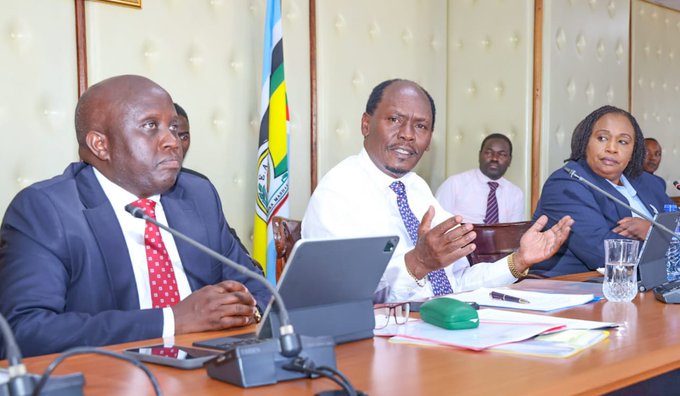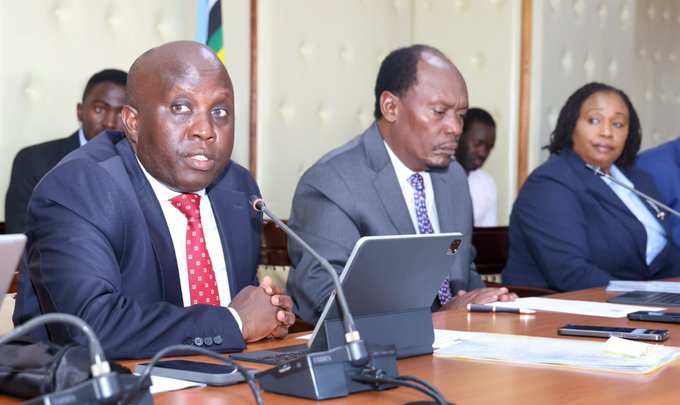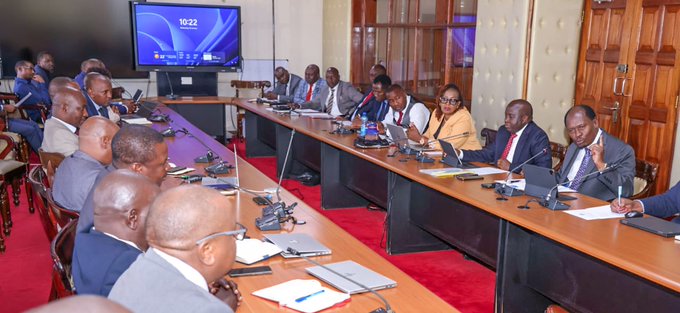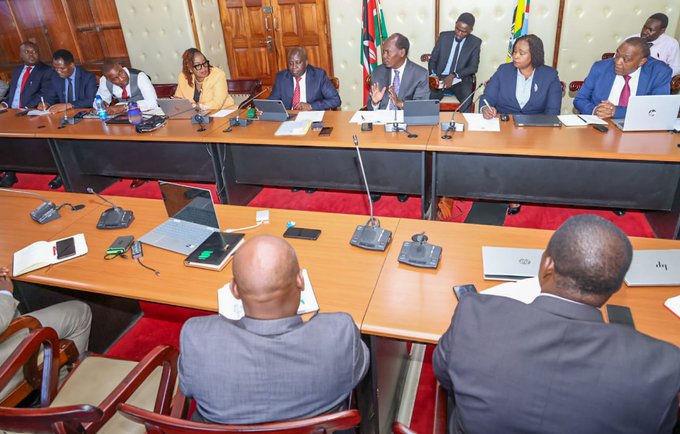NAIROBI, Kenya – The Ministry of Information’s Cabinet Secretary, William Kabogo, has renewed calls for the full digitization of government operations, an initiative aimed at streamlining service delivery, promoting transparency, and boosting economic growth.
Speaking during a meeting with senior officials from the State Department of ICT, Kabogo emphasized the need for a cohesive, whole-government approach to ensure the success of the digitization agenda.
He pledged that his ministry would lead this transformation, noting that ICT is a critical enabler for all government departments.
“We are going to strictly follow the laid-down guidelines and coordinate a whole-of-government approach,” Kabogo said, adding that the integration of backend processes and the elimination of manual records would be pivotal.
Kabogo outlined a 90-day timeline for his ministry to transition to a paperless communication system, including letters and memos, as a demonstration of the ministry’s commitment to the agenda.
He also set a broader goal to fully digitize the entire government by the time he leaves office.
The CS highlighted that digitization could play a significant role in combating corruption.
He explained that by making more information accessible to the public, the government would deter malfeasance and enhance accountability.
“If you can digitise government services from A-Z, the Controller of Budget and Auditor General will be able to pick up information from counties and the national government as it is happening,” he said. “This will help deal with the issue of pending bills.”
Today, I attended a briefing on the functions and operations of the Directorates and Departments within the State Department for ICT and Digital Economy, part of the Ministry of Information, Communications, and the Digital Economy. During the session, I emphasized the need for…
In a symbolic gesture to encourage integrity, Kabogo proposed the creation of an anti-corruption trophy to recognize individuals or teams whose work visibly contributes to fighting corruption within government ministries.
Highlighting progress under the Ministry of Lands’ digitization program, Kabogo revealed that Sh3.9 billion has already been spent on scanning and digitizing records.
However, he called for the complete migration of these documents to a digital system to eliminate the generation of new physical records.
Principal Secretary for ICT and Digital Economy, Eng. John Tanui echoed Kabogo’s sentiments, emphasizing that ICT is essential for the effective delivery of government services.
Tanui noted that the digital economy is growing at a rate 2.5 times faster than the physical economy, stressing the ministry’s role in supporting this growth through enhanced connectivity and operational platforms.
“The Bottom-Up Economic Transformation Agenda (BETA) has prioritised the ICT sector, mandating us to build 1,450 digital hubs across the country, enhance connectivity, and grow the economy,” Tanui said.
He acknowledged that some ministries had previously digitized only partially by scanning documents while continuing to rely on manual processes, which defeats the purpose of a fully digital system.
“As long as you are not moving to a digital process, it means you start generating new manual records,” Tanui explained. “For instance, in the Ministry of Lands, we worked as a multi-agency team and developed a digital system, which has shown significant advantages. We are now accelerating the digitisation of their centers nationwide.”







